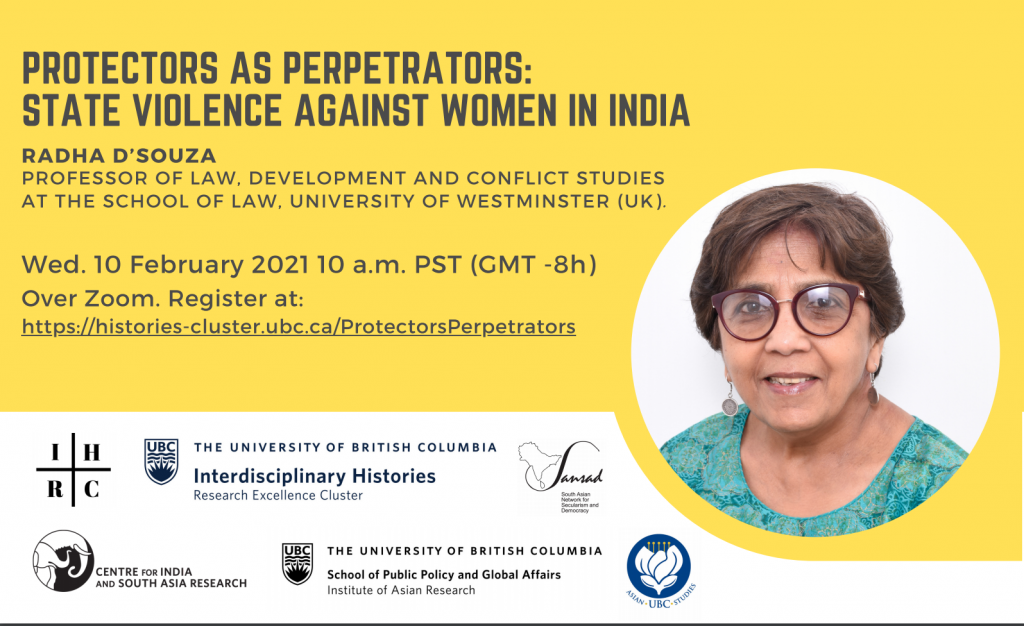
Professor Radha D’Souza’s address will focus on state violence against women in India. India is widely perceived to be the most populous democracy in the world. Its progressive constitution puts classical liberal rights including equality, non-discrimination, right to life and access to justice at the heart of the constitution as fundamental rights. At the same time India is also seen as the most dangerous country to be a woman in. Within and outside academia, the endemic and routinised violence against women is widely attributed to familial and societal causes. If the law fails to bring perpetrators of violence against women to justice, corruption within police and dysfunctional criminal justice system is seen as the problem. Going beyond these frames of analysis, Professor D’Souza will examine statutes like the Armed Forces Special Powers Act that exempt army personnel form prosecution in occupied territories, state organised pogroms against religious and caste groups, and the endemic everyday police violence against poor, Dalit (marginalised castes) and Adivasi (indigenous) women. Her address will call into question the assumptions about normative and procedural standards, including human rights standards, in Legal Studies and the theoretical and methodological strategies in Gender Studies that are typically used to analyse violence against women in India. State violence against women unravels assumptions about gender-based violence and rights based legal remedies.
Dr. Radha D’Souza is a professor of Law, Development and Conflict Studies at the School of Law, the University of Westminster in the United Kingdom. She is a critical scholar, social justice activist, barrister, and writer, from India. Radha’s research and writing focus on the Global South, in particular South Asia, law and colonialism and neo-colonialism, history of imperialism in South Asia, and comparative theory and philosophy. She is an interdisciplinary scholar who has published in the fields of sociology, history, geography, development studies, besides legal studies. She has written on activism and the security state, anti-colonial movements in South Asia, and on militarisation and ethnonational conflicts in South Asia. Her recent book What’s Wrong With Rights? Social Movements, Law, and Liberal Imaginations (Pluto, 2018) maps the transformations in the regime of international rights to the transformations in post-World War imperialism. Her most recent article ‘Law and Development: From ‘company raj’ to UN System via indirect rule’ (Routledge, 2020) examines how legal principles of colonial governance under the British Empire have come to be elevated as international law.
This event is organized by Dr. Sunera Thobani (UBC) and Interdisciplinary Histories Research Cluster, and is co-sponsored by the Centre for India and South Asia Research/Institute for Asian Research/School of Public Policy and Global Affairs and Department of Asian Studies at UBC.